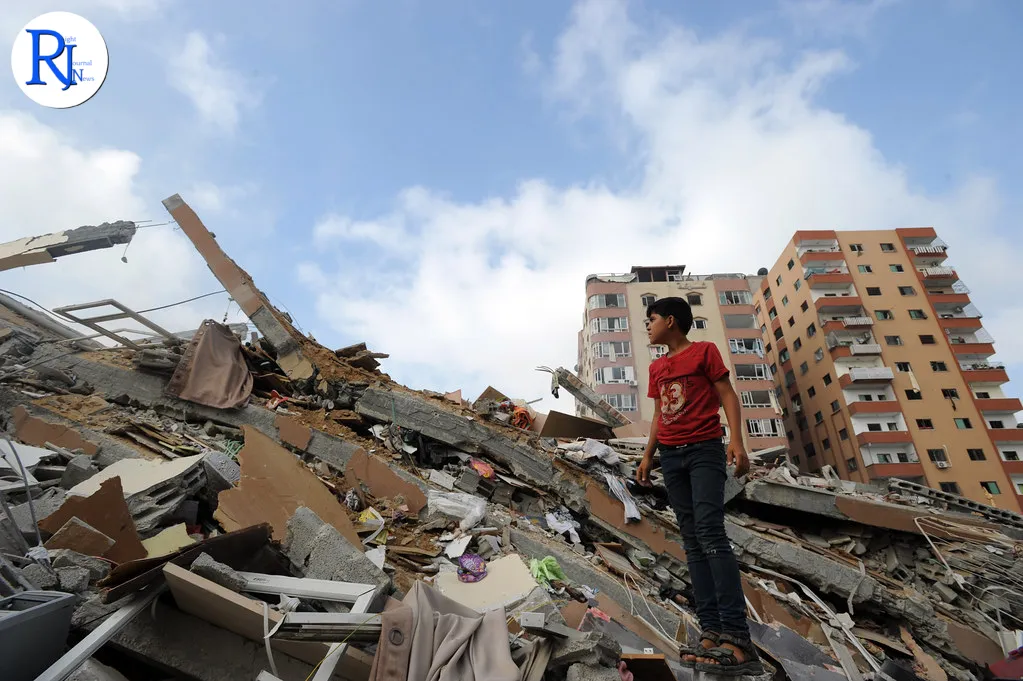Israeli Prime Minister Benjamin Netanyahu has reportedly made a decisive move towards a full military occupation of the Gaza Strip, according to Israeli media sources. This significant development comes as tensions between Israel and Palestine continue to escalate, capturing international attention. Netanyahu’s war cabinet is expected to approve comprehensive military operations aimed at asserting control over the entire enclave, a move that could reshape the regional landscape and has already ignited widespread debate across the globe.
A New Chapter in the Israeli-Palestinian Conflict
The decision for full occupation marks a pivotal moment in the longstanding Israeli-Palestinian conflict. Reports suggest that the operation will be extensive and could involve significant troop deployments, reshaping the dynamics on the ground. This decision follows months of heightened tensions and intermittent violence, with both sides experiencing casualties. The Israeli government has cited security concerns and the need to dismantle militant infrastructure as key reasons for this aggressive strategy.

Timing and Location
The decision comes amidst a backdrop of increasing hostilities, with the Gaza Strip being a focal point of conflict for decades. The timing of this move is critical, as it coincides with a period of heightened international scrutiny and diplomatic efforts aimed at achieving a ceasefire. The Gaza Strip, a densely populated area with over two million residents, has been under a blockade by Israel and Egypt since 2007. The current situation exacerbates the humanitarian crisis already affecting the region.
Military Strategy and Objectives
Netanyahu’s strategy aims to dismantle Hamas, the de facto governing authority in Gaza, and neutralise its military capabilities. According to military analysts, the operation could involve ground invasions, airstrikes, and targeted operations against key Hamas figures. “The objective is to ensure long-term security for Israeli citizens and prevent future attacks,” stated an Israeli Defence Forces (IDF) spokesperson. However, experts warn that such an operation could lead to significant civilian casualties and further destabilise the region.
International Reactions and Concerns
The international community has reacted with concern over the potential humanitarian impact of a full occupation. The United Nations and several human rights organisations have called for restraint and emphasised the need for diplomatic solutions. “A military occupation would exacerbate the humanitarian crisis and lead to unnecessary loss of life,” said a spokesperson for the United Nations Relief and Works Agency (UNRWA). The European Union and the United States have also urged Israel to consider the broader implications of such an action.
Humanitarian Implications
The humanitarian situation in Gaza is already dire, with limited access to essential services such as healthcare, clean water, and electricity. A full military occupation could further strain these resources, leading to a potential humanitarian disaster. Humanitarian organisations are preparing for an increase in displacement and are calling for open borders to allow aid to reach those in need. “The people of Gaza are already suffering; a military escalation will only compound their plight,” warned a representative from the Red Cross.
Potential Political Ramifications
Politically, the decision could have far-reaching consequences for Netanyahu’s government. Domestically, it may bolster support among hardline factions and those advocating for a tough stance against Hamas. However, it could also lead to increased criticism from opposition parties and peace advocates. Internationally, Israel risks straining relations with allies who favour a negotiated two-state solution. The potential for increased isolation on the global stage cannot be overlooked.
Forward-Looking Insights
As Netanyahu’s war cabinet prepares to finalise this decision, the world watches closely. The implications of a full occupation of Gaza are profound, affecting not only regional stability but also global diplomatic relations. The coming weeks will be critical in determining whether this move leads to a sustainable resolution or further conflict. Stakeholders are urged to prioritise dialogue and seek peaceful solutions to this complex issue. The road ahead remains uncertain, but the need for peace and stability has never been more urgent.

